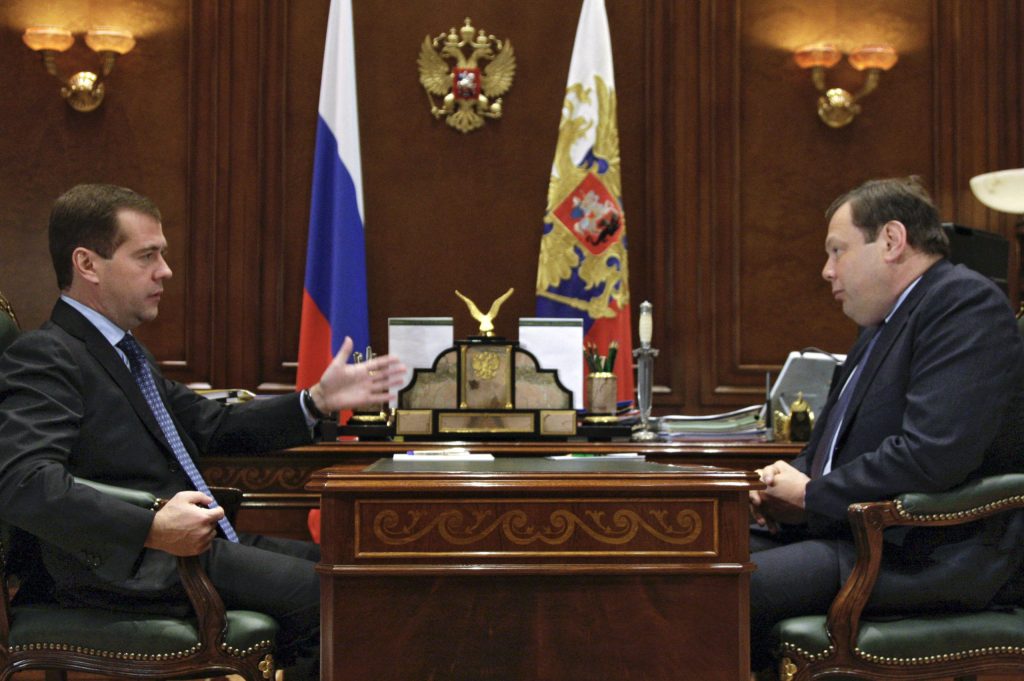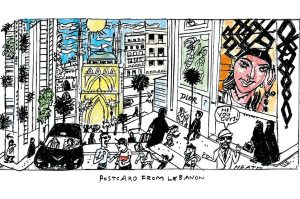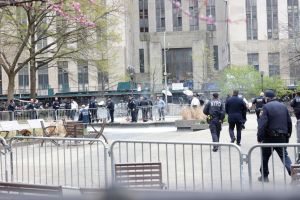Glasses are clinking in the London offices of Orbis Business Intelligence, home to the former MI6 officer Christopher Steele. Steele has learned that a court in Washington DC has dismissed a libel action brought by three Russian oligarchs over what he wrote about them and their company, Alfa Bank, in his dossier on Donald Trump, Russia, and the US presidential election. Steele is celebrating this as a major victory for the First Amendment and against what he views as an effort – backed by the Kremlin – to use the courts to muzzle him.
The dossier did not actually say much about Alfa’s owners, Mikhail Fridman, Petr Aven and German Khan. ‘Alpha’ – as the dossier misspells it – was the subject of only one of the 17 Company Intelligence Reports that made up the dossier, one-and-half pages of more than 35. But the few paragraphs he did write set out allegations that Alfa’s owners have had a long and mutually beneficial relationship with Russia’s leader, Vladimir Putin.
A top level Russian government official…reported that although they had had their ups and downs, the leading figures in Alpha currently were on very good terms with PUTIN. Significant favours continued to be done in both directions, primarily political ones for PUTIN and business/legal ones for Alpha. Also, FRIDMAN and AVEN continued to give informal advice to PUTIN on foreign policy, and especially about the US where he distrusted advice being given to him by officials.
Steele continued:
The top level Russian government official described the PUTlN-Alpha relationship as both carrot and stick. Alpha held ‘kompromat’ on PUTIN and his corrupt business activities from the 1990s whilst although not personally overly bothered by Alpha’s failure to reinvest the proceeds of its TNK oil company sale into the Russian economy Since, the president was able to use pressure on this count from senior Kremlin colleagues as a lever on FRIDMAN and AVEN to make them do his political bidding.
Steele went on to repeat his source’s claim that Alfa’s owners ‘delivered large amounts of illicit cash directly to Putin’ when he was deputy mayor of St Petersburg in the 1990s. But the three oligarchs did not sue over this claim. Instead they objected to the headline on the report: RUSSIA/US PRESIDENTIAL ELECTION: KREMLIN-ALPHA GROUP CO-OPERATION. Steele had produced no details and no evidence of such ‘co-operation’, they said. On that the court agreed with them. But the court concluded the statement was opinion, not fact, based on what his source was telling him about a longstanding relationship between Alfa and Putin, and therefore could not be a defamatory false statement of fact.
It is a well-known tactic of Russian oligarchs to use the courts – and especially the libel laws – to try to silence critics. Mikhail Fridman is said to regard suing people as a hobby. ‘He appears to enjoy it,’ said one close observer of his dealings over the years. What’s a few million here or there on legal fees if it sends a message that you will always sue? The US has laws designed to stop rich public figures using the courts to stifle public criticism. The oligarchs argued that Steele, as a Brit, had no right to this protection. The First Amendment says otherwise, the court told them.
Alfa’s owners – it’s said – like to portray themselves as the ‘clean oligarchs’. They have a sophisticated and costly PR machine designed to maintain this image. They will not have liked the fact that the judge in Washington quoted a ruling from an old case in which Alfa sued a non-profit investigative news organisation called the Center for Public Integrity – and lost. ‘Although Alfa Bank has developed a reputation in the international community as one of the most respected Russian financial institutions, Aven and Fridman have been dogged by allegations of corruption and illegal conduct.’ The rest of that original ruling specified those allegations in painful detail: ‘Russian newspapers have published repeated claims that Aven and Fridman have rigged the auction of state assets through government connections, threatened the lives of government officials, ordered the assassination of a mobster, and engaged in narcotics trafficking and money laundering.’
The Alfa lawyers say they will ‘almost certainly’ appeal and that they ‘respectfully disagree’ with the judge’s findings. The three oligarchs certainly have the money to lose. But Steele’s friends hope the judge’s ruling will put them off. Steele is facing several other legal actions. There is one brought by another oligarch, Aleksej Gubarev. There’s also one before the Federal Election Commission.
But what of the allegation that provoked the libel action in Washington, that Alfa had something to do with the Kremlin’s operation to get President Trump elected? It is true, as the court in Washington notes, that the dossier ‘does not present any direct evidence that Alfa interfered in the US election’. But the FBI has been investigating whether a computer server in Trump Tower was communicating with one belonging to Alfa Bank during the campaign. It is not known what, if anything, the FBI found.


















